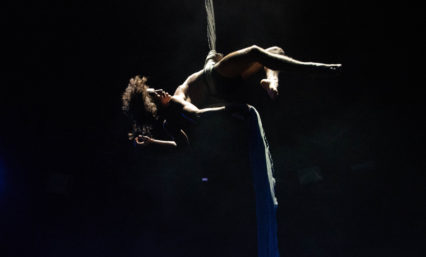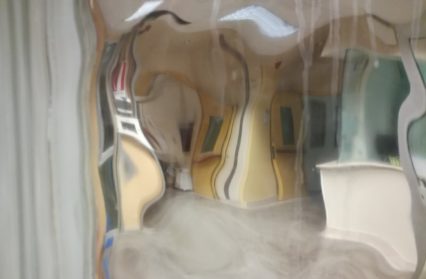Dance critic Eva Marloes explores how she rediscovered ideas of movement after life-changing surgery, and how lockdown could force us to rethink our relationships with our own body.
As Covid-19 ravages across the world, it brings to light our vulnerability, our disconnect from the natural world, but also how destructive the way we narrate events and frame how to deal with them is. The UK government’s initial policy of herd immunity, people’s panic-buying, and anti-Chinese prejudice, reflect a mentality of antagonism and war. We are plunged into a battle against an invisible enemy, where the young and healthy are valiant soldiers while the elderly and vulnerable are for some to be sacrificed for the good of the economy. The appeals to the ‘blitz spirit’ repeat the war propaganda which suppressed the reality on the ground, as argued by historian Richard Overy.
The fighting rhetoric and stoic emotional suppression mutilate our body, as persons and as a nation. The myth of toughness and survival against the odds is but a delusion. It is the delusion of being always physically healthy and strong, independent and self-reliant, and of being separate from others and from the natural world. It is the delusion of having control over our body and over nature. My experience of disability and my research of contemporary dance have made me aware of how the way we organise society (work, traffic, housing, leisure etc.) disconnects us from our own bodies and that of the planet.
Two and a half years ago I had a major surgery that changed my life. All of a sudden I was disabled. I used to walk fast and for long stretches, the surgery took that away from me. It took me many months before I could go back to my walking. I could barely sit, yet I felt guilty for not writing. I felt guilty for not having a job and losing the attached status it gives. I felt guilty for being obese. The more I tried to control my body, the more it let me down. I was able to change it and lose a significant amount of weight only when I accepted my body and worked with it rather than against it.
 Observing dance as an embedded critic has brought home how you cannot separate body, mind, and emotions. We think and feel through our bodies and our emotions and thinking are not separate. We cannot control how we feel or even our thoughts. We can acknowledge them and not let us be overwhelmed by them. Interviewing dancers I have learned that they have often found themselves in conflict with the expectation of all having the same body and being able to move in the same way. They felt inadequate for not having someone else’s body and for not doing a move in what is considered to be the right way.
Observing dance as an embedded critic has brought home how you cannot separate body, mind, and emotions. We think and feel through our bodies and our emotions and thinking are not separate. We cannot control how we feel or even our thoughts. We can acknowledge them and not let us be overwhelmed by them. Interviewing dancers I have learned that they have often found themselves in conflict with the expectation of all having the same body and being able to move in the same way. They felt inadequate for not having someone else’s body and for not doing a move in what is considered to be the right way.
In contemporary dance the movement emerges from the dancer’s body. Movements are not a reaction to music, they come from inside, so dancers need to listen to their bodies. Dance brings body, emotions, and mind together. Dancers need to be attuned to their body to move and express the emotions and the ideas of a piece. Thinking, feeling, and moving are one.
My experience of dance, pain and disability, and bodily transformation has taught me that we cannot impose control over our bodies, we need to listen. The military language used in relation to Covid-19 turns us into soldiers and victims. If it continues it will add a sense of guilt and further suffering, as shown by the research on language used with cancer patients (see Hendricks et al. 2018; Semino et al. 2017).
The framework of battle and the myth of pseudo-stoic acceptance of death encapsulate our disconnect from our own humanity and the natural world. Scientists have been warning that the destruction of wildlife and the climate crisis are leading to diseases, including Coronavirus.
We are one with the planet. We cannot fight it. We need to find strategies to be in harmony with it.
Nature is too often seen as separate from us, something to dominate and exploit, or something pretty to enjoy and preserve. We do the same with our bodies. We consume them or we pamper them. Sometimes we punish them. As we learn to wash our hands thoroughly, we might begin to notice and appreciate our body for what it is not the way we think it should be. As we separate our bodies from others, we might come to appreciate how connected we all are. As we see how fragile human life is, we might come to accept our vulnerability and that of our neighbour.











